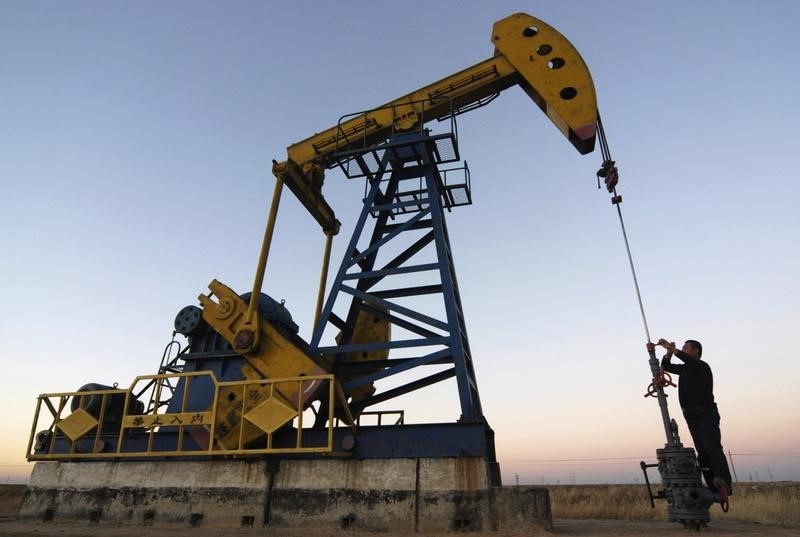Investing.com - West Texas Intermediate oil futures extended heavy losses from the previous session on Tuesday to hit a fresh three-month low as traders looked ahead to weekly data on U.S. stockpiles of crude and refined products later in the day.
On the New York Mercantile Exchange, crude oil for August delivery hit an intraday low of $52.11 a barrel, a level not seen since April 10, before trading at $52.30 during U.S. morning hours, down 71 cents, or 1.34%. On Monday, New York-traded oil prices tumbled $4.40, or 7.73%, to end at $52.53.
Market players looked ahead to fresh weekly information on U.S. stockpiles of crude and refined products to gauge the strength of demand in the world’s largest oil consumer.
The American Petroleum Institute will release its inventories report later in the day, while Wednesday’s government report could show crude stockpiles fell by 0.5 million barrels in the week ended July 3.
U.S. oil futures plunged last week after Baker Hughes (NYSE:BHI) reported that the number of domestic rigs drilling for oil rose by 12 to 640 last week, snapping 29 straight weeks of declines.
Elsewhere, on the ICE Futures Exchange in London, Brent oil for August delivery lost 38 cents, or 0.66%, to trade at $56.78 a barrel.
A day earlier, London-traded Brent plunged $3.78, or 6.27%, to close at a three-month low of $56.54 as the continuation of Greek and Iranian negotiations, as well as concerns in China remained in focus.
Meanwhile, the spread between the Brent and the WTI crude contracts stood at $4.48 a barrel, compared to $4.01 by close of trade on Monday.
Greek Prime Minister Alexis Tsipras was to present new proposals to euro zone finance ministers later in the day, ahead of a meeting of European leaders to discuss the aftermath of Sunday’s referendum in Greece.
Failure to strike a deal would increase the likelihood of Greece leaving the single currency union.
Without a bailout agreement in place Greece may default on a €3.5 billion payment owed to the European Central Bank on July 20. Greece last week defaulted on a €1.6 billion loan repayment to the International Monetary Fund.
The dollar index, which measures the greenback’s strength against a trade-weighted basket of six major currencies, was up 1% to a five-week high of 97.40 early Tuesday, boosted by a weaker euro.
Dollar-denominated oil futures contracts tend to fall when the dollar rises, as this makes oil more expensive for buyers in other currencies.
Oil traders were also eyeing nuclear talks between the West and Iran, which could push millions of barrels of crude into the oversupplied world market.
Tehran wants to double oil exports to more than two million barrels a day if a deal is reached and sanctions are lifted, a top Iranian official said Monday.
Global oil production is outpacing demand following a boom in U.S. shale oil production and after a decision by the Organization of Petroleum Exporting Countries last year not to cut production.
Meanwhile, shares in China resumed their decline despite efforts by the government to calm the market. The Shanghai Composite tumbled nearly 3% in volatile trade on Tuesday. The index is down almost 32% over the past three weeks.
Policymakers in Beijing announced the suspension of initial public offerings over the weekend and corralled its leading brokerages to establish a RMB120 billion fund to support the country's battered stock market.
Investors are concerned that the recent plunge in the stock market could spread to other parts of the economy, triggering fears that China’s demand for oil will decline.
